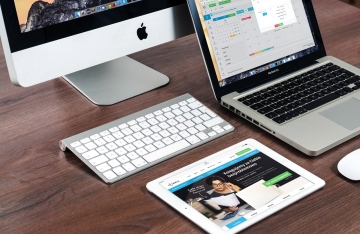All businesses need to pay a number of different taxes and, without careful monitoring, these tax payments can have a negative impact on your business’s bottom line. The tax which your business needs to pay will depend on a number of factors, from how your business is set up to the size of your team. Many small businesses, however, can reduce their tax payments and benefit from tax relief.
A lot of smaller businesses simply aren’t aware of the different ways in which they can reduce their tax payments and, if done correctly, they can help to save a lot of money which, as a small business, shouldn’t be sniffed at. Many businesses pay too much tax each year for the simple reason that they are not claiming enough, if any, justifiable tax deductions. Let’s take a look at 5 ways you can reduce your small business tax payments with just a few changes.
Familiarise Yourself With The Rules Of Claiming Tax Back
When it comes to reducing your tax payments, you need to remember that if you don’t claim your deductions, then you will simply be paying unnecessary taxes. It’s important to only claim what you are allowed to claim for and keep a good, clear record of all your costs and expenses, no matter how small or large the payment is.
The key thing to remember when claiming tax deductions is that organisation is key and will make the process much easier. The general principle is that tax deductions apply to costs which have been wholly or exclusively used for business purposes, or which were necessary for the running of the business. Expenses which you have incurred for personal use are not allowed to be claimed back, but if the item was a mixture of business and personal, then part of it could be tax deductible.
Claim Expenses For Everything Which Is Allowable
There are a number of different, allowable, expenses which as a small business you can claim back. Utilities and rent can be claimed back, as can some staff costs and salaries, so if you have a building premises and a team of employees, find out which you can claim back. If you are having to frequently buy stock or need raw materials for your business, then you can claim tax back on these, too.
When it comes to business necessities, things such as office supplies – which can range from stationary to coffee – can be claimed back, alongside travel and accommodation costs for travel to meetings with clients or suppliers. If you have marketing and advertising costs, you can also claim back on these and if your company provides employees with insurance, for example, relevant life insurance, or private healthcare services, then these can also reduce your tax payments.
There are other, lesser-known, areas in which you can claim tax back on, including:
- Memberships and subscriptions
- Employee training programmes and courses
- Christmas parties or social events
- Parking costs
- Charity donations
Depending on the type of expense, there are different tax and reporting rules which apply.
Working From Home
With the rise in the number of people choosing to work from home expanding substantially over the past few years, more and more businesses are becoming aware of the tax reductions that can be claimed as a result of employees working from home. Although this can be partially covered under business expenses, if your or an employee’s home is being used for business purposes then all limited companies can then claim a certain percentage back for household costs and utility bills as a legitimate business expense.
To do this, you can use HMRC’s flat tax repayment fee of £6 per week, or you can work out the exact amount by calculating the percentage of household costs which have increased or been incurred as a result of working from home. If you choose this option, however, then you must keep a full record of these payments from receipts, contracts or utility bills.
Capital Allowances
Most business expenses that are incurred from day-to-day operations can be deducted from overall business income when working out the number of taxable profits. For capital expenditure, however, the rules and processes are slightly different. Capital allowances describes the allowance that businesses can use to secure tax relief for certain forms of capital expenditure.
A lot of the typical capital allowance items last longer than a year or so and include things such as computer equipment, machinery and vehicles. The tax rules state that you can’t automatically deduct the full cost of these items in one go. Different rules are applied to the different types of capital expenditure and, in a number of cases, there is no tax relief available even though the item may have been bought solely for business use.
Annual Investment Allowance (AIA) is one of the most commonly used capital allowances used by small businesses. This tax relief is fairly generous and allows the total amount of expenditure to be deducted from profits before tax. AIA can be claimed by the business or partnership, as well as an individual, if they are carrying on a trade or profession or furnished holiday let, as well as a UK non-residential property business. It is only partnerships with a mixture of individuals or companies involved within the business structure that are unable to qualify for AIA.
In January 2016, the limit for AIA was permanently set at £200,000 for all qualifying expenditure, but from January 2019 to January 2022, this was temporarily increased to £1 million. As a result of this increase, this should cover the annual spend for most small and even medium-sized businesses.
Small Business Rate Relief
Business rates are charged on almost all non-domestic premises and this includes most commercial properties such as shops, offices, warehouses, pubs and factories. There are some properties which are eligible for discounts on their business rates from the local council and this is called business rates relief.
In 2020-2021, the business rates retail discount in England was increased to 100% as a result of the pandemic which affected industries such as retail, leisure, hospitality and nurseries.
Conclusion
Reducing the burden of business tax should be a huge priority for small businesses in the UK. Whilst not always easy to do so, there are several easy ways in which you can reduce the amount of tax that you pay.
However, the UK has some of the most complex tax regulations in the world and whilst there are ways in which you can reduce your small business tax payments, it’s important that you learn about and understand the ways in which you can do so. If you’re not sure how best to apply for tax reductions, then work with a broker or accountant who is best placed and experienced in doing this.




